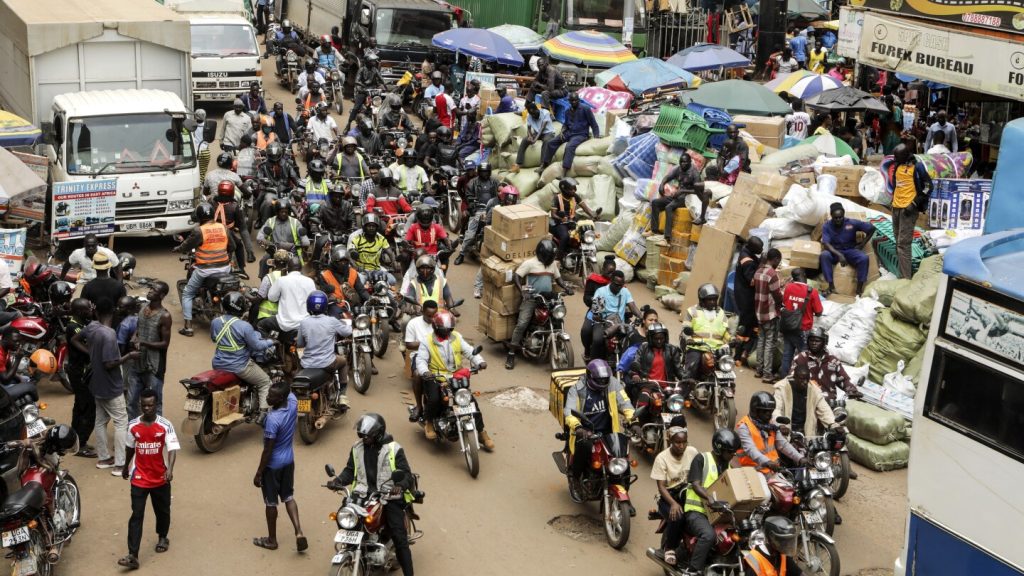The streets of Kampala, Uganda’s capital, are filled with young men operating motorcycle taxis known as boda-bodas, trying to make a living in a city plagued by unemployment and lack of other job opportunities. With an estimated 350,000 boda-bodas operating in Kampala, the city has become synonymous with these speeding motorcycles that provide essential but sometimes menacing means of transport. Many of the boda-boda drivers come from all parts of Uganda and have resorted to this line of work due to a lack of other options, including individuals with advanced degrees who are unable to find employment.
The surge in boda-bodas in Kampala is a direct result of the high unemployment rate in Uganda, particularly among the youth population. The government’s recent survey indicated an unemployment rate of 12% in 2021, with even higher numbers for young people in urban areas. President Yoweri Museveni has long utilized boda-boda men as supporters, recognizing their influence and role in political mobilization. However, the overwhelming presence of motorcycle taxis in the city has led to concerns about road safety and traffic violations, with fatal accidents related to motorcycles on the rise.
Despite the challenges posed by the increasing number of boda-bodas, the government has attempted to address the situation by implementing regulations and licensing fees. President Museveni has taken steps to reduce the licensing fee for boda-bodas and provided support to unemployed individuals by gifting motorcycles to supporters. This has made it easier for individuals to enter the boda-boda business, with the cost of acquiring a motorcycle being around $1,500 for a new one. Many drivers work for companies that provide equipment on credit, while others risk having their motorcycles impounded by police for not having the necessary licenses or safety gear.
The culture of non-compliance with traffic rules and road safety regulations among boda-boda drivers has exacerbated concerns about their impact on public safety. Establishing official motorcycle taxi stands and enforcing stricter regulations has been suggested as a way to bring order to the chaotic situation on Kampala’s streets. The city authorities have faced challenges in regulating the boda-boda industry due to the sheer number of drivers and the fear of public disorder in making arrests. As the boda-boda phenomenon continues to grow, the government will need to find sustainable solutions to ensure the safety of both drivers and passengers on the streets of Kampala.
In conclusion, the proliferation of boda-bodas in Kampala reflects the broader issue of unemployment and lack of economic opportunities in Uganda. The government’s attempts to regulate the industry and support boda-boda drivers have had mixed results, with concerns about road safety and public disorder persisting. As the city grapples with the challenges posed by the boda-boda phenomenon, finding a balance between supporting livelihoods and ensuring public safety will be crucial in shaping the future of transportation in Kampala.


